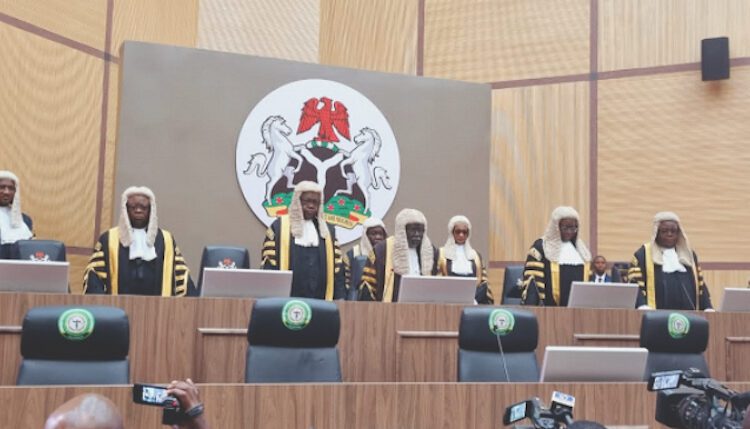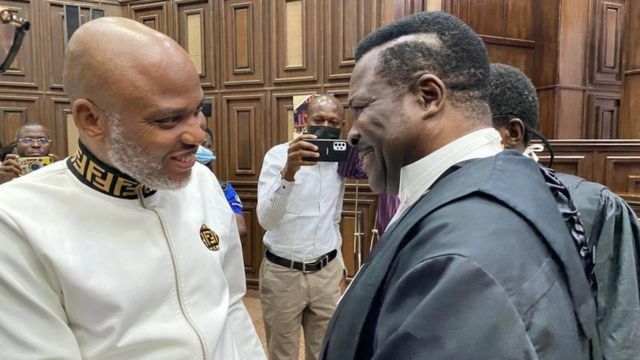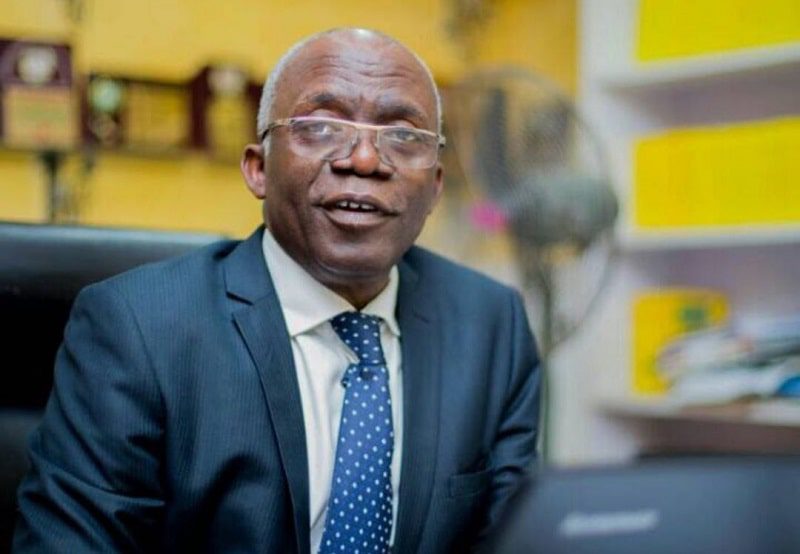By Comfort James

Federal High Court in Lagos has ordered the final forfeiture of $2.04 million, several high-value properties, and share certificates linked to former Central Bank of Nigeria (CBN) Governor Godwin Emefiele.
Justice Deinde Dipeolu, presiding over the case, ruled that Emefiele’s inability to provide evidence linking his lawful earnings to the assets left no choice but to approve the Economic and Financial Crimes Commission’s (EFCC) application for forfeiture. The court concluded that the properties, located across some of Lagos’s most affluent neighborhoods, and the $2.04 million were reasonably suspected to be proceeds of unlawful activities.
The assets in question include prime real estate in Lekki and Ikoyi, two of Lagos’s most prestigious areas. Notably, the properties comprise “two fully detached duplexes in Lekki Phase 1, an undeveloped plot in Ikoyi, and a four-bedroom duplex on Probyn Road, Ikoyi.” Additional assets include “an industrial complex under construction in Agbor, Delta State,” as well as an apartment building on Adekunle Lawal Road, Ikoyi.
More Insight of the Emefiele Forfeiture Case
The forfeiture order follows a legal process initiated by the EFCC, which had argued that Emefiele acquired these assets using proceeds from activities inconsistent with lawful earnings.
The EFCC claimed that the former CBN governor had acquired these properties through intermediaries and companies allegedly controlled by him. According to reports, the companies linked to these assets include Amrash Ventures Limited, Finebury Properties Limited, Fidelity Express Services Limited, and others. Despite Emefiele’s denials, EFCC investigations suggested that these companies, in whose names the properties were registered, were associated with the former CBN governor.
Channels TV reported that Emefiele had denied any connection to the companies, insisting that he had no financial interests in the properties in question. However, the companies failed to present themselves in court to claim ownership.
This absence reinforced the EFCC’s argument, and Justice Dipeolu ultimately stated that the former governor’s inability to provide satisfactory explanations regarding the origins of his funds implied that the properties were “reasonably suspected to have been acquired with proceeds of unlawful activities.”
Justice Dipeolu’s Ruling
Justice Deinde Dipeolu, in his ruling, emphasized that the court’s decision was based on evidence presented by the EFCC, as well as Emefiele’s failure to establish any lawful interest in the properties. He stated that, as the defendant could not prove his financial ability to acquire these properties through legitimate earnings, the forfeiture order was warranted.
The Justice further noted that the absence of the companies listed as the properties’ registered owners only strengthened the EFCC’s case, as no other entity or individual had contested the forfeiture.
“The properties are suspected to have been obtained from the proceeds of unlawful activities,” Dipeolu stated, underlining the court’s assessment that the assets in question likely originated from sources outside the legal financial system. Consequently, the ruling mandates that all properties, funds, and shares be transferred to the Federal Government of Nigeria.




















